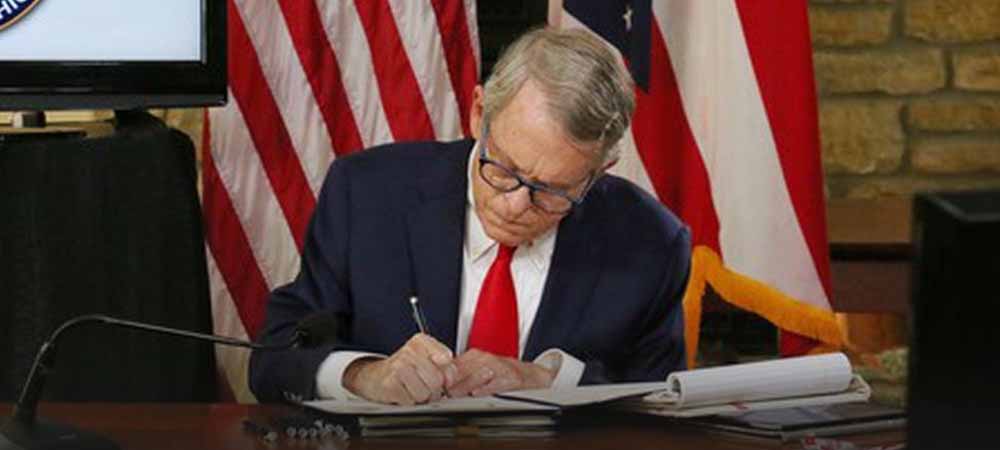- HB 29, a bill legalizing and regulating sports betting in Ohio, overwhelmingly passed both the Ohio Senate and Ohio House of Representatives on Wednesday.
- The bill now heads to Gov. Mark DeWine’s desk, where it is considered extremely likely to be signed into action, as the governor has gone on record as a proponent of the bill.
COLUMBUS, Ohio – Ohio is one step away from becoming the 31st state to host a legalized and regulated sports betting industry after the Ohio Senate passed HB 29, an online and retail sports betting bill, by a vote of 31-1 Wednesday afternoon.
Shortly thereafter, the Ohio House of Representatives passed the bill by a 72-12 margin, sending the bill to Governor Mark DeWine for his approval.
Gov. DeWine has gone on record multiple times with his support for a legal sports betting industry in Ohio, and it is considered overwhelmingly likely that he signs the bill, potentially as soon as the end of the week.
The bill, OH HB 29, has been a full three legislative sessions in the making and outlines that there will be at least 25 statewide mobile licenses issued. Each of these licensees will be permitted to apply for a second skin, but there is no guarantee the additional license will be granted.
The bill stipulates that additional licenses will be issued only if the first batch of 25 can prove a positive economic impact.
Each mobile operator will be required to pay a $3 million licensing fee for the first mobile skin, and a $10 million licensing fee for the second. Operators are permitted to offer both land-based and online sportsbooks, though they will need to acquire a separate license for each.
Betting In Ohio
On top of the mobile licenses, the state will issue 40 licenses to land-based venues, such as casinos and professional sports stadiums. Ohio sports betting revenue will be taxed at a 10% rate.
HB 29 mandates that legal sports betting in Ohio are to be 21 years of age or older to place wagers. Players of legal age will face no restrictions on which events may be wagered on, unlike many states which ban certain types of wagers (typically on in-state teams or events).
One point of controversy heading into the hearing was over which entity would be granted oversight authority over the newly-created sports betting industry – the Senate was lobbying for the Ohio Casino Control Commission to be granted oversight authority, while the House was pushing for the authority to be given to the Ohio Lottery.
Evidently, the Senate got their way, as HB 29 puts the Ohio Casino Control Commission in charge of both licensing and regulating the sports betting industry in the state.
Another important detail of the bill is that it mandates a universal start date – all operators that receive a license will launch on the same date. This date has yet to be decided, but the bill mandates that the launch occurs at some point during 2022. The Ohio Casino Control Commission will begin accepting applications for sportsbook licenses on January 1, 2022.
The commission can begin issuing these licenses as soon as April 1, 2022.
Advertising Disclosure
In order to provide you with the best independent sports betting news and content LegalSportsBetting.com may receive a commission from partners when you make a purchase through a link on our site.
News tags: Mark DeWine | Ohio | Ohio Casino Control Commission | Ohio HB 29 | Ohio House Of Representatives | Ohio Lottery | Ohio Senate

Jerad has been a welcomed addition to the LegalSportsBetting.com writing team. Covering topics regarding the expansion of sports betting in the US, Jerad focuses on legislative efforts, bill signings and other methods for sports betting legalization. Finishing his education as a college baseball player, Jerad has first-hand knowledge of competitive sports, paired with years of personal sports betting as well. As a political science major at the University of Central Florida, Jerad covers the political, legal, and legislative aspects of sports gambling without any issues.



 College Football Betting
College Football Betting Best Online Sports Betting
Best Online Sports Betting Best Legal NFL Betting
Best Legal NFL Betting States With Legal Sports Betting
States With Legal Sports Betting Sports Betting Events
Sports Betting Events




